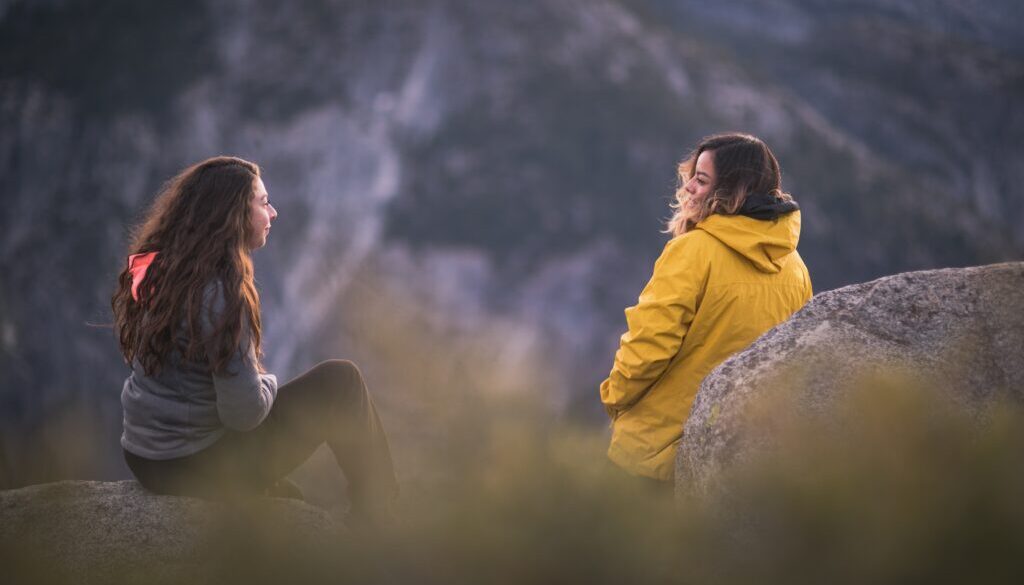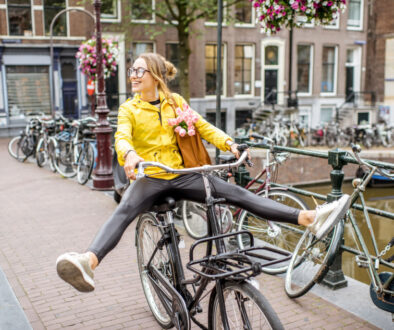Socialising with Strangers: Research and Anecdote
Last month my partner and I embarked on a month-long camping trip around California. We hiked up mountain after mountain. Cooled off in creeks and rivers. Read books. Played games.
We fell into a routine, a rhythm. Soaking up the end of summer.
We fell in love with camping (and more in love with each other).
We were expecting to see breathtaking views, jaw-dropping redwoods, mesmerising wildlife. Excited to escape the buzzing rush of suburban life, to switch off, slow down.
Breathe.
What we hadn’t anticipated was the impact our fellow travellers would have on our journey. How the characters we met along the way would be central to the stories we would tell to friends and family back home. The unexpected highlight of our trip.






Some interactions were as brief as a smile and a wave – watching someone take a funny photo or video of a friend. Others were as simple as a butcher saying “Pleased to meat you” in response to my partner’s T-shirt which read “Pleased to jive you” (itself referencing a band from our hometown). Some were conversations about tandem bikes, or the bear we just saw plodding through our campsite! Others involved kind neighbours lending us an axe, or giving us a brochure.
The most memorable connection we made was with a family staying next to us for two nights in Memorial Park. Or perhaps more accurately, our interactions with two of the kids.
It didn’t take them long to come say hi after we set up camp. We had fun asking them to guess how old we were. Their first guess was 16 – a little off. We’re both 25.
Whenever we arrived back at our campsite after a walk or swim in the creek, one of the kids would wander over for a chat. On our second night the youngest gave us each a stick of gum.
Over the course of the three days we spent at Memorial Park, we played four-square, tips, and hide-and-go-seek tips. Although we heard about a number of games involving zombies, we didn’t get to play one firsthand.
The morning we left we made sure to say goodbye and thank them for the games.

The unexpected joy we felt interacting with our camping comrades should not have come as such a surprise. We both learnt about the benefits of socialising with strangers when taking a free online course called The Science of Well-Being.
In the course, Dr Laurie Santos – psychology professor and host of The Happiness Lab podcast – takes students on a scientific and personal journey. Students discover that, in general, people are bad at predicting what will make them happy. We assume that cool stuff (e.g. a new phone), good grades, a prestigious job, more and more money, and the “perfect” body will make us happy. But these assumptions are unsupported by the evidence. Rather than buying the latest iPhone, or chasing a high-ranking job, we should instead be prioritising exercise, sleep, kindness, mindfulness, time affluence, and of course, social connections.

Studies show that people who are more social are happier, and that loneliness is worse for us than we think. Not particularly surprising findings.
What I found more surprising was the fact that short, casual interactions with strangers can significantly impact our well-being. We don’t have to rely on spending time with our closest friends. From smiling at a stranger, to chatting with the person next to us on a train, interacting with strangers can improve our mood. Comforting news for someone who has recently moved thousands of kilometres away from their friends and family.
In a study by Epley & Schroeder, participants incorrectly predicted that they would be happier if they kept to themselves on their commute, rather than making a connection with a stranger. The researchers found that the opposite was true. Participants instructed to connect with someone had a significantly more positive experience compared to participants who were either told to disconnect or to commute as they normally would. Participants instructed to disconnect actually felt worse than when they started their commute.
Epley & Schroeder think that participants were bad at predicting what would make them happy because they assumed that the other person would not enjoy the interaction. But the study found that both commuters were happier when they made a social connection (the initiator and the person approached), as opposed to passing the time alone.
Even after taking The Science of Well-Being I was still surprised by the impact small interactions with strangers had on my mood during our trip. It just goes to show that even after learning about the importance of socialising, we can still fall back on what we intuitively think will make us happy.
Reflecting on our trip, my partner and I have decided that going forward we want to invite more friends over for dinner. We want to go to more social events. And we want to try volunteering at our local parkrun (something we did for the first time last weekend!).
Individually, I’m making more of an effort to view my time with strangers as an opportunity. Whether I’m at the climbing gym, or going for a walk, or buying groceries. It’s a chance to be social, to make a connection, and to make my day – and someone else’s – a bit more joyful.





October 21, 2022 @ 5:19 pm
What a wonderfully positive article! I’m currently travelling around Australia and I’m constantly interacting with strangers. Often it is these interactions that are a highlight of my day. Most of the time these are surface value chats ‘hello, How are you going?’, but on occasion I get to have deep discussions with people from a completely different walk of life to me. I have learnt about the habits of palm cockatoos, the
Politics of building hospitals and the challenges of australian tourism in the 90’s. All areas that I have very little knowledge about. It has been wonderful to gain these different perspectives and knowledge. As you have said in your article we do not always see the benefits we will get from talking to strangers so good to just give it a go and see what happens.